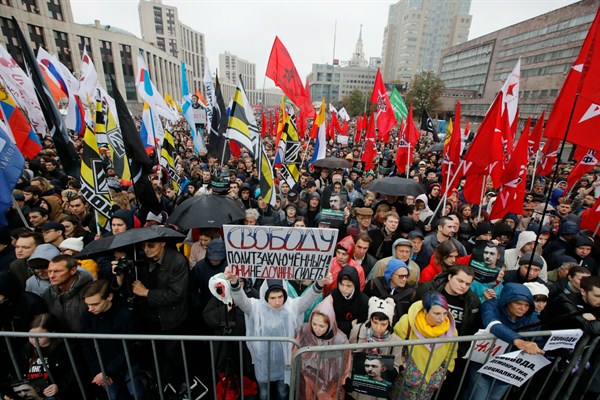MOSCOW—In late September, some 25,000 people gathered in central Moscow to demand the release of political prisoners who were jailed during the wave of demonstrations that rocked the Russian capital this past summer. At their peak, the protests, demanding fair elections, had crackled with urgent energy. But the mood on this cold, rainy Sunday was more reflective, as participants assessed the movement’s accomplishments and laid out future plans.
The speakers, who stood on a stage looking out over a street named after Soviet dissident Andrei Sakharov, included seasoned veterans like Alexei Navalny, Russia’s most prominent opposition politician, and his political ally Lyubov Sobol, who had unsuccessfully tried to run as an opposition candidate in the summer’s local elections. But the lineup also featured newer faces—young activists who had grown up knowing only Vladimir Putin as their leader and who, after the summer of discontent, wanted to continue what they had begun.
“Tell me, did you get tossed in police wagons this summer? Were you hit with batons for nothing?” Valeriy Kostenok, a 20-year-old activist who had been arrested in August for throwing two plastic water bottles in a police officer’s direction, asked the crowd. “Do you want this to continue?” he went on, referring to the movement. “Will we keep fighting together?” After each of his questions, the crowd resoundingly responded, “Yes!”

